Once Caged at Waccatee Zoo, These Lucky Animals Now Live in Sanctuaries
VICTORY: Decades of alleged animal neglect and mistreatment at Waccatee Zoo in Myrtle Beach, South Carolina, have ended, and the facility’s operators can never again own or exhibit wild or “exotic” animals.
In late October 2024, a cougar, a coatimundi, and a potbellied pig who were once confined at the now-shuttered Waccatee Zoo were moved to accredited sanctuaries, bringing the total number of animals rescued by PETA from Waccatee to 12. This followed a lawsuit against the facility and its operators by PETA and concerned Myrtle Beach residents.
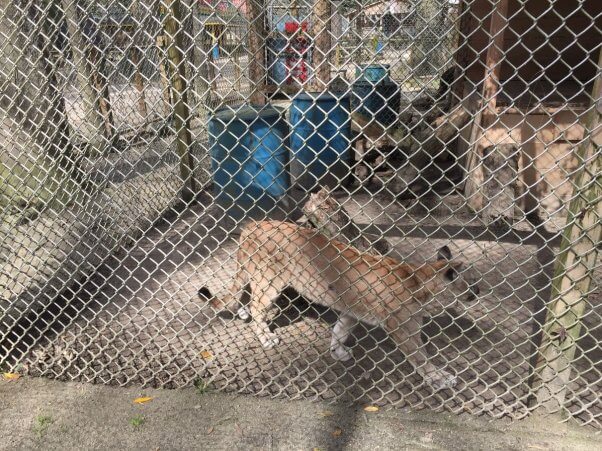
About five months after filing the lawsuit, PETA learned that Waccatee was secretly transferring animals out of the facility—including to Zootastic Park in North Carolina—and filed an emergency motion to prohibit further transfers. The cougar is now living at Carolina Tiger Rescue in Pittsboro, North Carolina, and the coatimundi and potbellied pig are at Lions Tigers & Bears in California.
In their natural habitats, coatimundis live in tight-knit bands of up to 30 individuals and spend much of their time in tall trees. Cougars are solitary and secretive animals who travel up to 15 miles a day in search of food. Pigs get bored easily, require significant mental stimulation, and crave the companionship of other pigs. Yet at roadside zoos like Waccatee and those depicted on Netflix’s Tiger King, animals are often confined to dismal, barren cages and deprived of adequate food, water, shelter, and veterinary care. Baby animals are frequently torn away from their mothers to be used in stressful encounters with the public, and adult animals may suffer from psychological distress as a result of constant frustration, loneliness, and even abuse.
PETA urges compassionate people everywhere to stay far away from roadside zoos, where animals are exploited for entertainment and denied everything that’s natural and important to them.
On August 4, 2023, PETA and two concerned citizens—the parties involved in the lawsuit against this notorious roadside outfit and its operators—settled their case.
The resolution occurred exactly three months after PETA and The Wild Animal Refuge in Springfield, Colorado, rescued the remaining animals held captive at Waccatee.
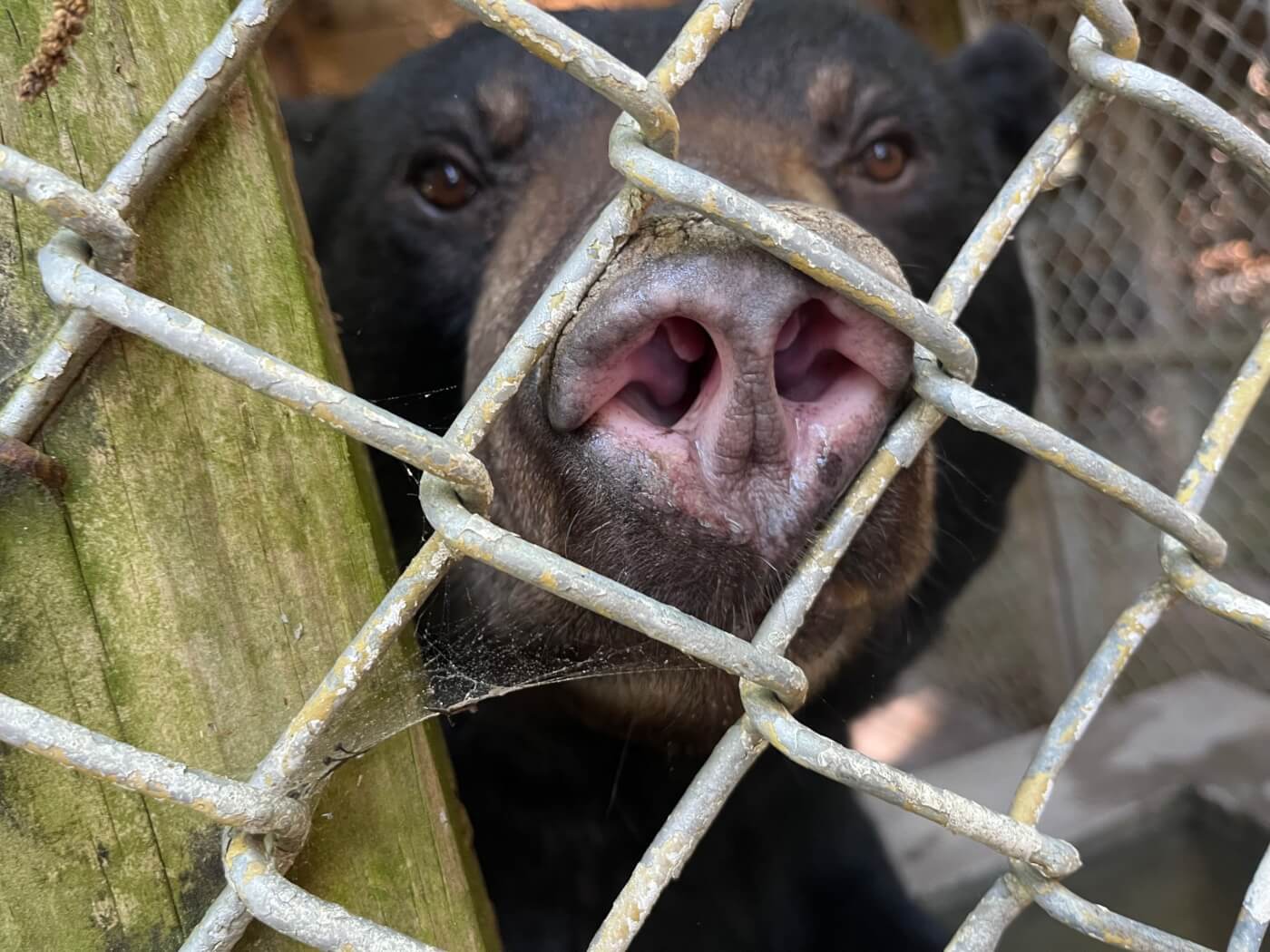
All parties must comply with the terms of the settlement, which include the following conditions:
- Waccatee Zoo is closed permanently and must surrender all remaining animal exhibitor or rehabilitation licenses or permits.
- The defendants may not own or exhibit wild or exotic animals or any species protected by the Endangered Species Act—with the exception of free-roaming peacocks currently on the facility property—and are subject to strict limits on ownership of domestic animals.
- The defendants may not work or volunteer at other roadside zoos in the future.
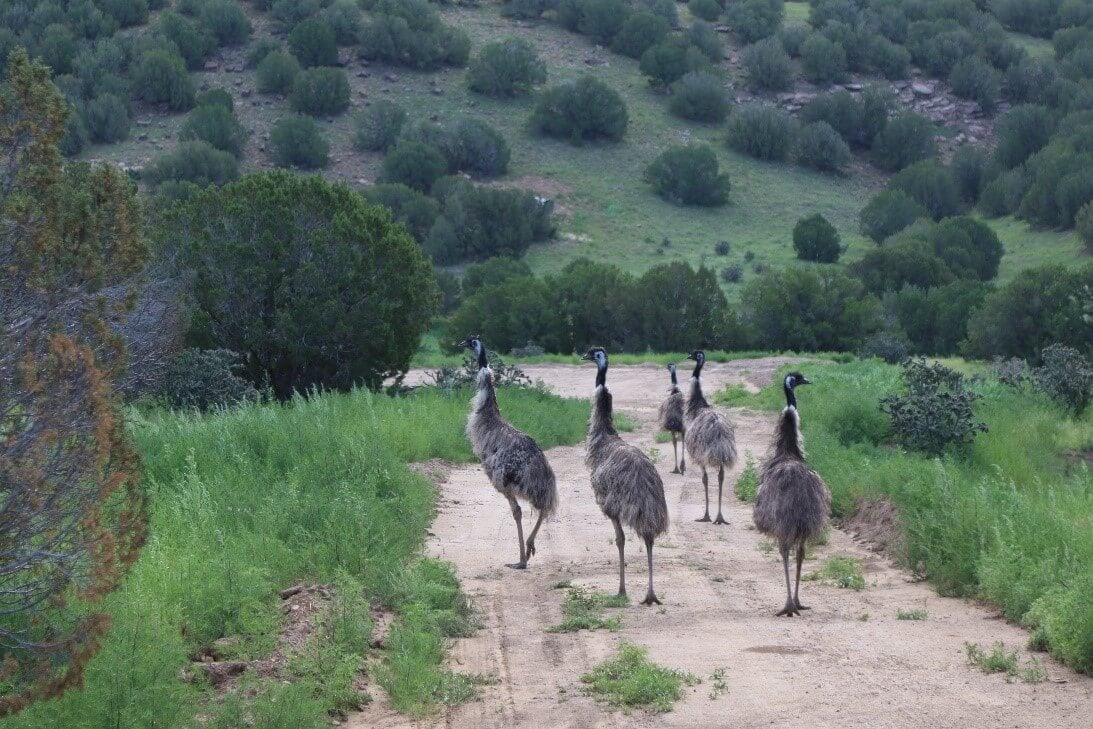
Hopefully, Waccatee Zoo’s closure will be a wake-up call to all other roadside operations exploiting animals for entertainment.
Originally published on May 4, 2023:
On May 4, PETA assisted in the rescue of the final nine animals held at the notorious Waccatee Zoo! Following a lawsuit filed by PETA and two concerned citizens who visited the roadside zoo and were appalled by conditions for animals there, a llama, two bears, and six emus are heading to TWAR in Springfield, Colorado. At the sanctuary, these animals—following their quarantine and rehabilitation—will be released into massive, multi-acre habitats in a natural setting. There, they’ll no longer be used as props for human entertainment. They’ll live as freely as is possible for captive animals.
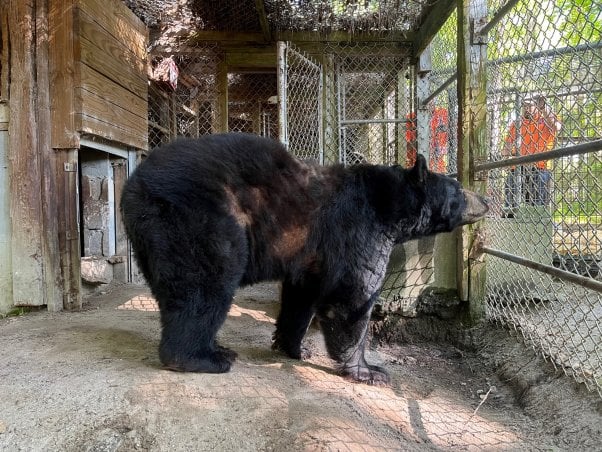
Waccatee claims that it permanently closed its doors to the public in September 2022, after PETA and our co-plaintiffs filed a lawsuit against the facility.
Two Bears Rescued From Waccatee Zoo
The bears—who are thin and suffer from a chronic skin condition—will receive immediate expert veterinary care once they arrive at their new sanctuary home.
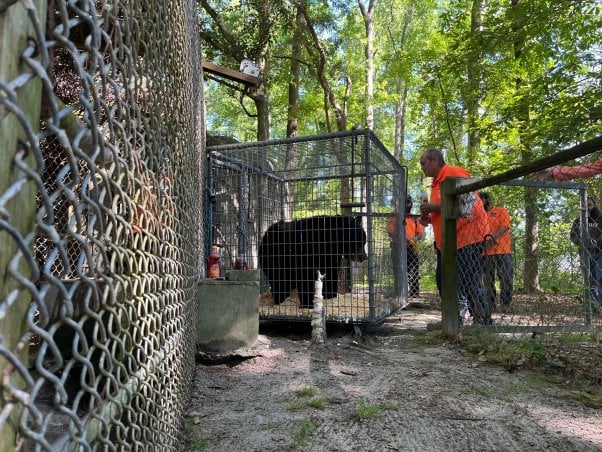
They’ll go from living in a cramped, dark enclosure at Waccatee, in which they could only take a few steps in any direction, to living in a bear’s paradise at TWAR, where they’ll have the things these animals need and enjoy:
- Acres to roam
- Soft ground for digging
- Opportunities for climbing, foraging, and socializing with other bears
In total, PETA has rescued 80 bears from roadside zoos, private owners, and the entertainment industry in the past 11 years.
Seven Other Animals Now Headed to Sanctuary
At the sanctuary, the llama and six emus will have ample space to explore. Their new homes come complete with appropriate shelter from the elements as well as access to excellent care from dedicated sanctuary staff.
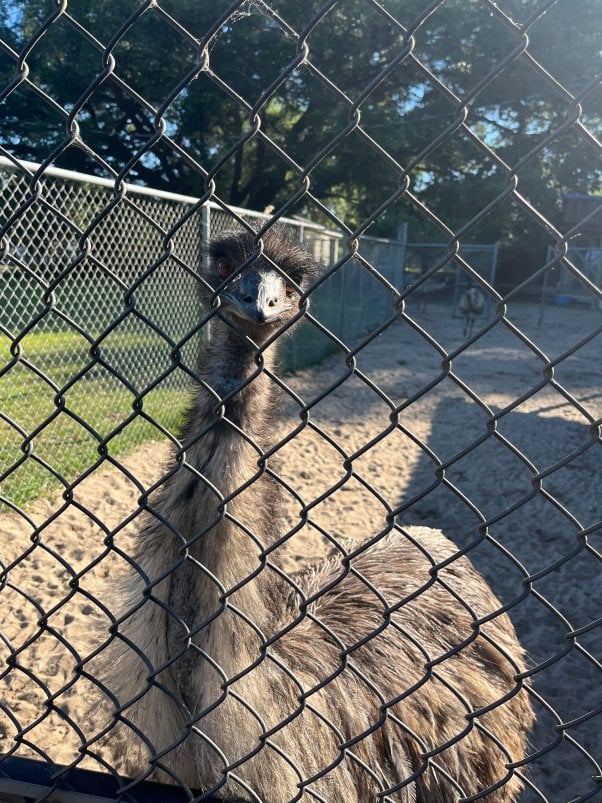
Despite the Rescue, PETA’s Lawsuit Against Waccatee’s Operators Continued
Previously, PETA dubbed Waccatee “the worst roadside zoo in America.” For decades, we advocated for the roadside zoo’s closure due to the ramshackle conditions and chronic neglect of the animals held there. On April 26, 2022, PETA and our two co-plaintiffs filed suit against the facility and its operators, alleging violations of both the federal Endangered Species Act and South Carolina’s public nuisance law.
In September 2022, PETA learned that Waccatee was secretly transferring some of the animals it held, an act that hindered our ability to collect evidence about the animals’ conditions and push for any needed veterinary treatment. We filed an emergency motion to prohibit additional transfers.
The court agreed with us, barring additional animal transfers except with prior notice to the plaintiffs and requiring Waccatee to account for the location of the transferred animals. Most of the roadside zoo’s animals had already been transferred to other roadside zoos or sold at shady exotic-animal auctions.
Help Spare Animals Suffering at the Nation’s New ‘Worst’ Roadside Zoo
Please, never go to roadside zoos. Now that Waccatee is permanently closed, the Barry R. Kirshner Wildlife Foundation is the worst roadside zoo in the U.S. Help spare the animals suffering there by taking action now:

